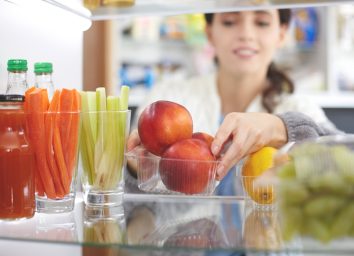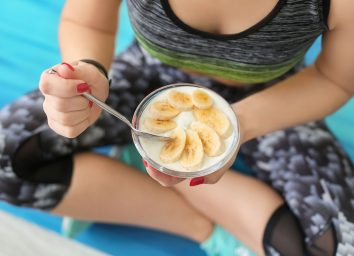Eating Habits During COVID That Are Shortening Your Life, According to Experts
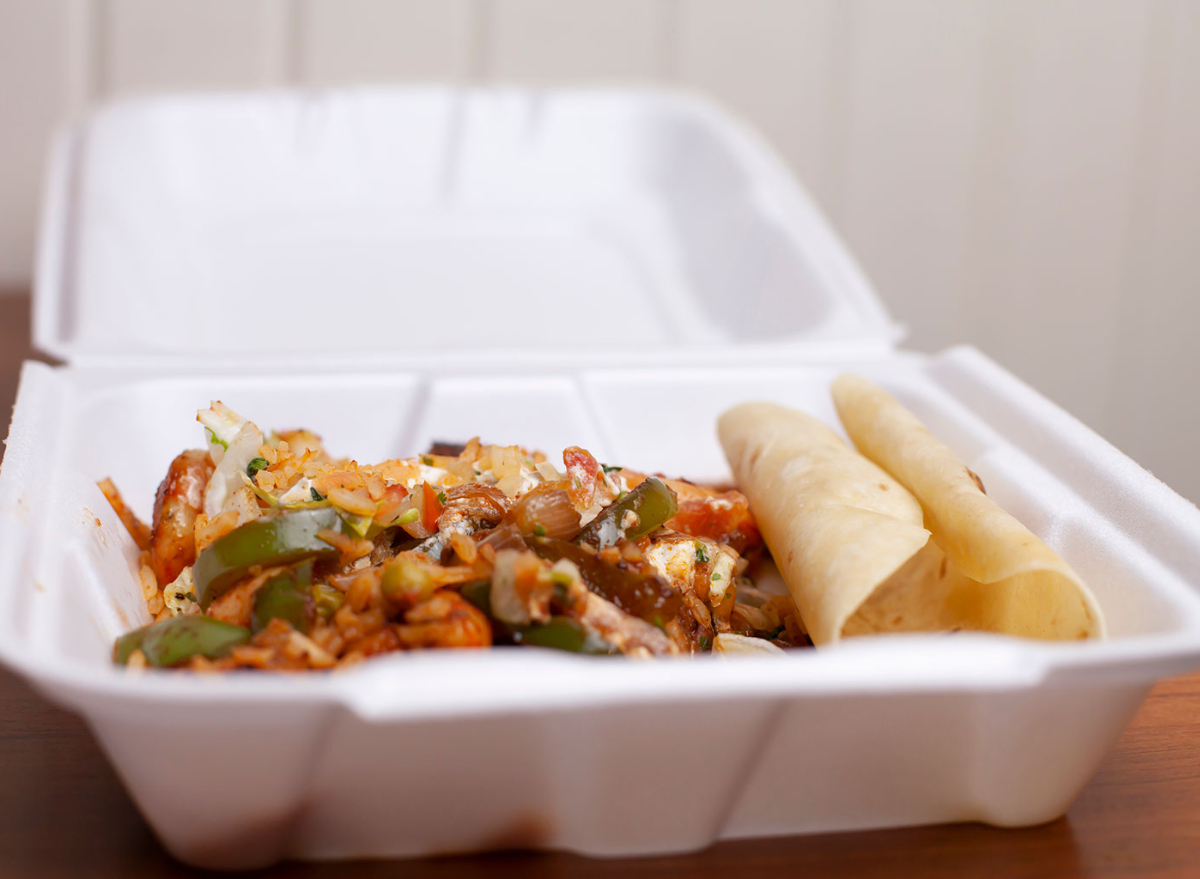
The past year has proven itself as a real challenge for all of us. After adapting to the events of 2020, our entire daily rituals have totally changed. The little things we took for granted, like going out to our favorite restaurants and bars now present some real dangers, and without adjusting our eating habits during COVID, we can easily put ourselves in harm's way.
As we change the way we live, we have the risk of developing some very serious patterns that do real damage to our bodies and potentially put us in harm's way. While many of us have found some solutions for the time being, not every routine we have fallen into can help our health. To figure out which COVID eating habits risk shortening our lifespan, we asked a variety of nutrition experts what routines to watch out for next time hunger strikes. Here's what they suggest, and for more helpful eating tips during COVID, be sure to check out our list of The 7 Healthiest Foods to Eat Right Now.
Avoid convenience items.
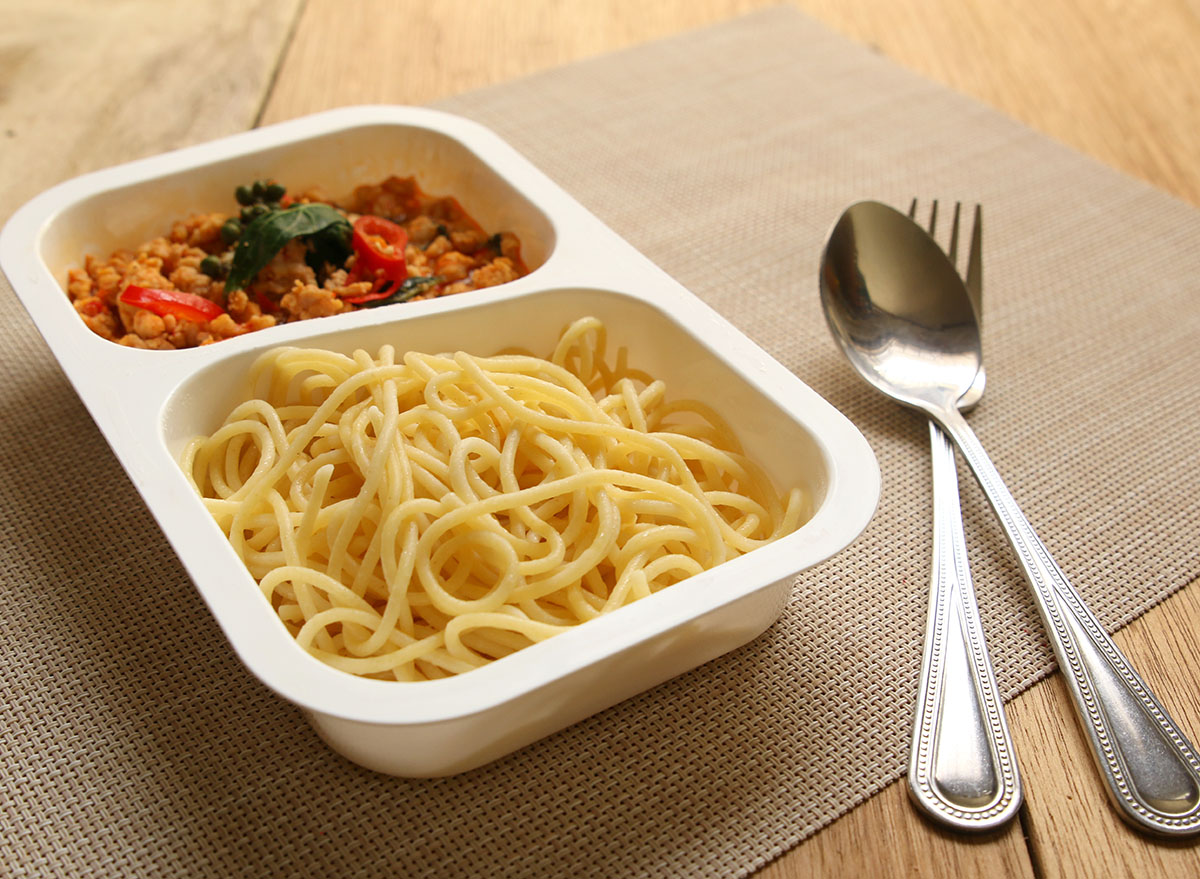
When we run out of energy to deal with cooking, microwaving a frozen meal or heating up a store-bought pizza feels like a lifesaver. No matter how helpful these items prove, make sure to not overdo it on these treats.
"Resist the temptation to stock up on convenience items at the grocery," says Shena Jaramillo MS, RD. "This can be tempting with wanting to avoid as many shopping trips to the grocery store. Often we find cookies, cakes, frozen burritos, sodas, frozen pizzas in our shopping carts. These can be high in calories and low in nutrients. A further problem is that many of them tend to linger right in our faces on the kitchen counter. Instead try for frozen or canned fruits and veggies, dried whole grains, and whole wheat breads to make food and nutrients go further."
Here are 12 Pantry Staples to Always Leave on Grocery Store Shelves.
Constantly ordering takeout.
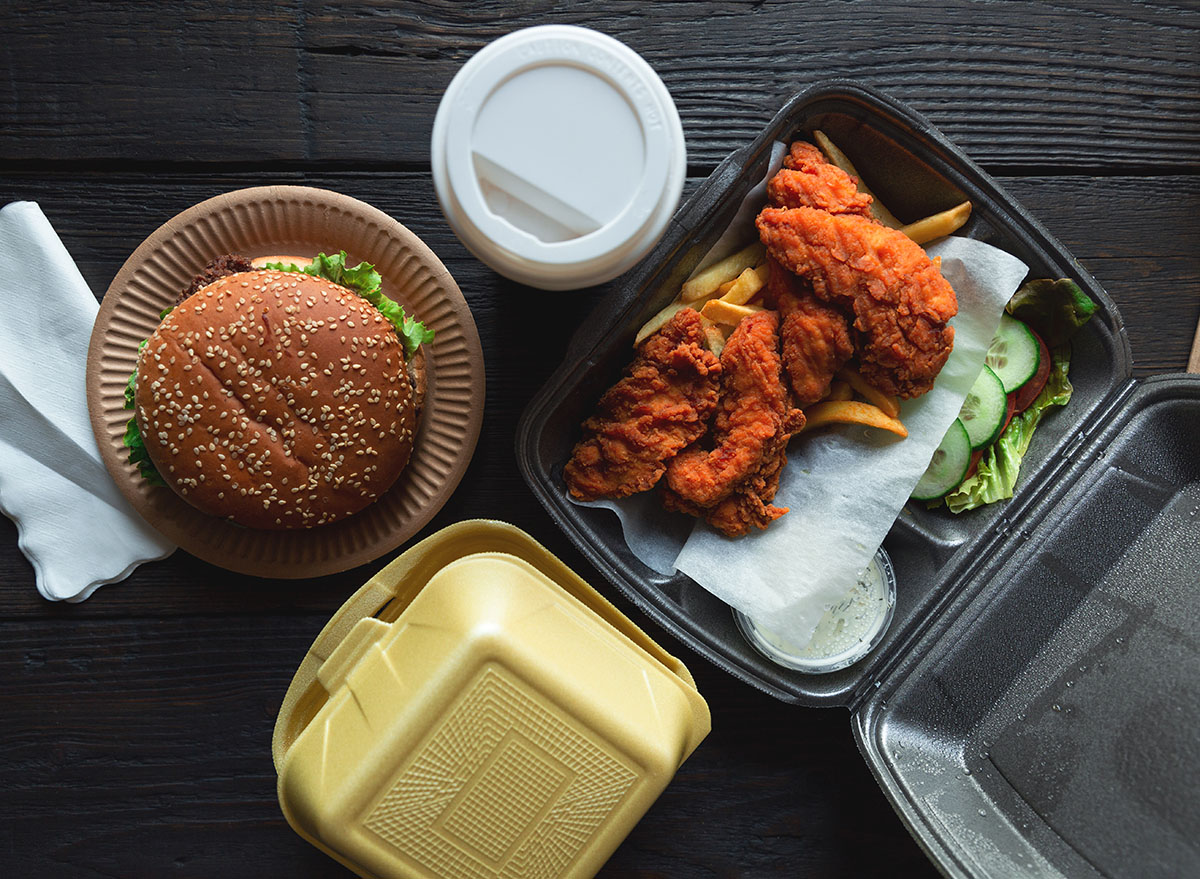
While frozen foods provide us with a convenient shortcut to cooking, worse options might present themselves at the click of a button. Nothing proves easier than ordering a meal over a delivery app, but this temptation can easily do some real harm to our bodies.
"This can be tempting as we are all eager to get out of the house!" Jaramillo said. "However, [ordering takeout] can lead to a diet high in fats, sodium, and added sugars. Over a duration of time, this can lead to weight gain and feeling sluggish."
To learn which items to grab and avoid next time you feel like splurging on takeout, check out What to Eat—and What to Skip—When It Comes to Takeout Food.
Keeping poor nutrition foods in plain sight.
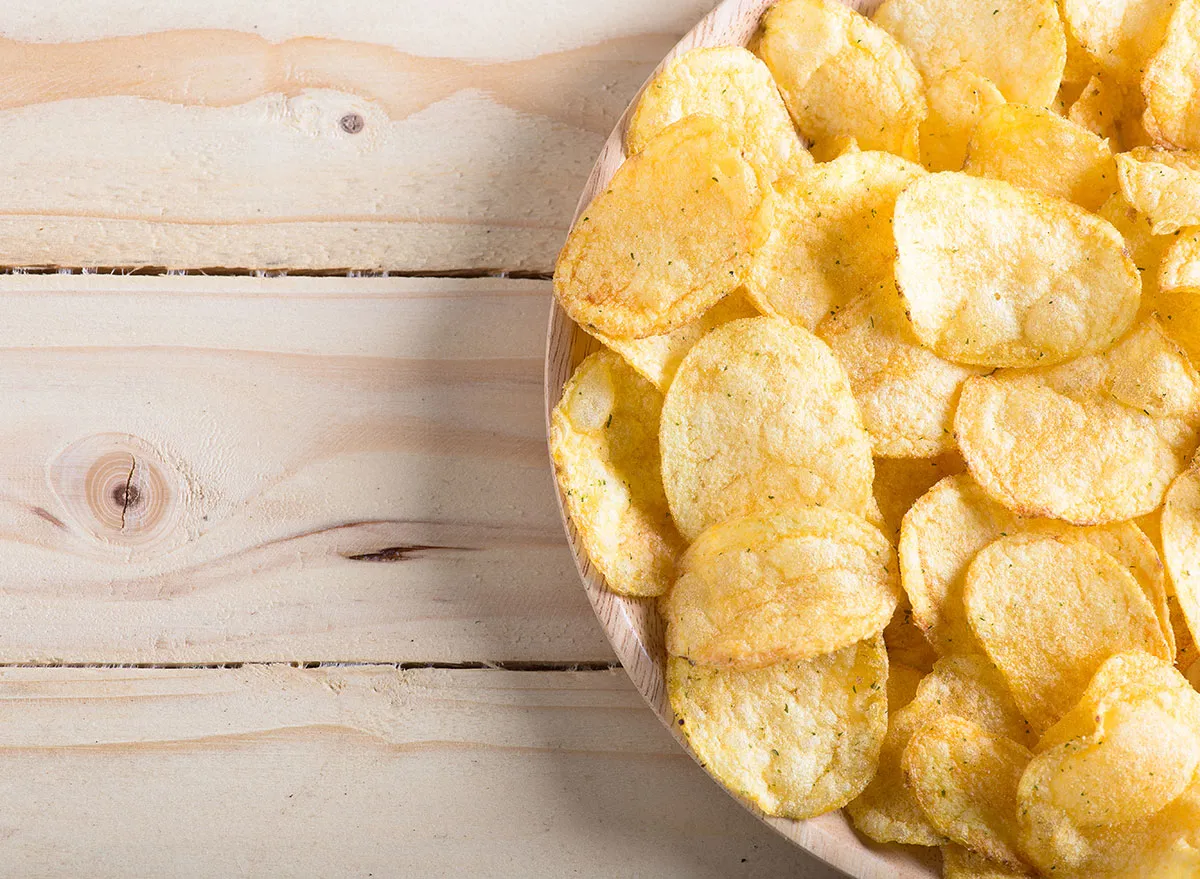
You have more to worry about than frozen meals and takeout.
"Being in your home way more often means you'll see food way more often, too," says Jackie Newgent, RDN, CDN, plant-forward culinary nutritionist and author of The Clean & Simple Diabetes Cookbook. "It seems logical, but mindlessly sneaking 'see food' is a habit that can sneak up on you. So, do a 'see food' kitchen makeover once a month. Simply be sure the food that's in plain sight is at least semi-nutritious. That means having a colorful fruit bowl rather than a cookie jar on your kitchen counter. Or stashing scrumptious treats in the freezer rather than having a dish of them in full view."
Get even more healthy tips like these by signing up for our newsletter.
Dining out.
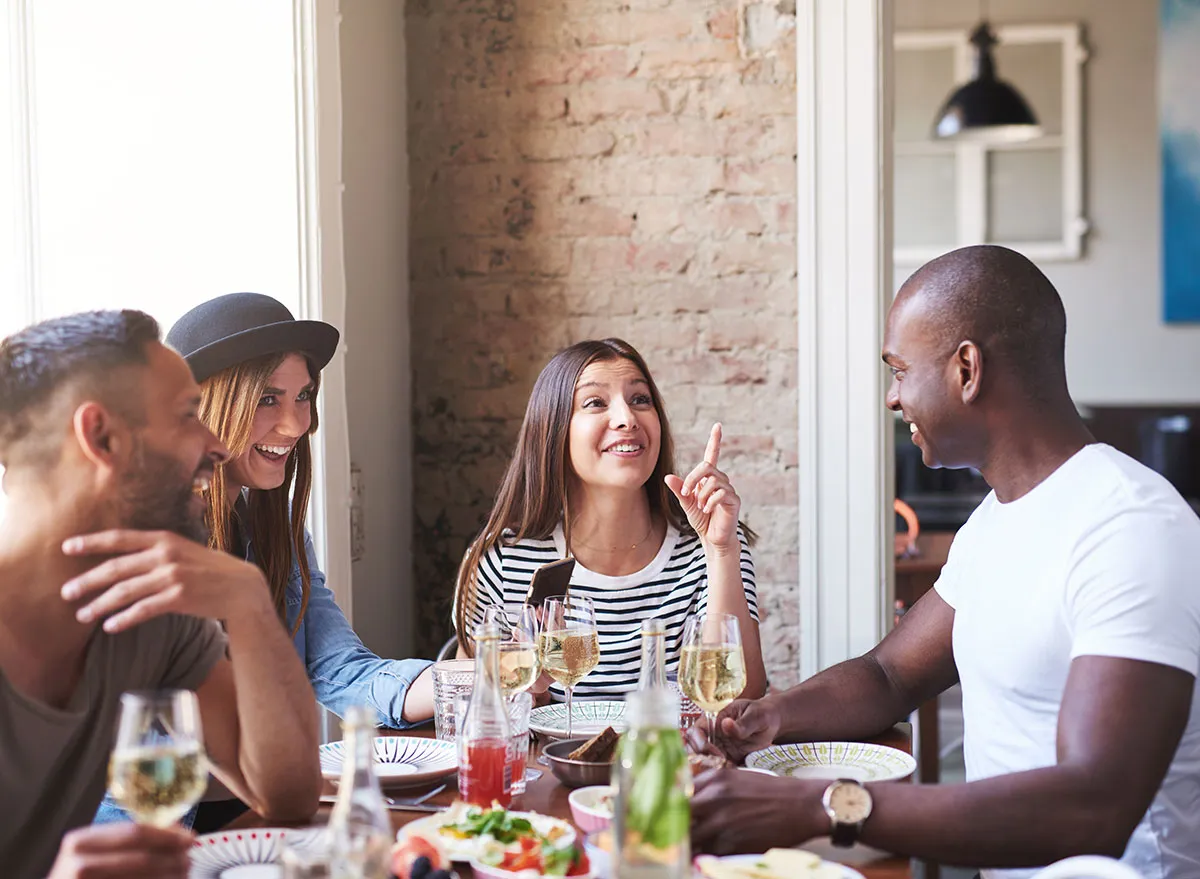
If you make the decision to dine out, you can put your health at serious risk.
"The major risk factors for COVID-19 include being in close proximity to others, not wearing a mask, and room ventilation," says Leann Poston M.D., M.B.A., M.Ed. "Eating at a restaurant or bar is a high risk for these reasons. You have your mask off. In the areas of the country where windows cannot be opened, ventilation is not likely to be adequate. Though restaurants are spacing tables at six feet or more, diners are not necessarily abiding by these policies to maintain adequate social distancing."
"I know that certain regions are allowing indoor dining at restaurants, and though it can be tempting to dine out with friends who claim they've 'been careful', you should only dine out with your immediate household (or bubble if your local laws have deemed it okay)," says Chris Airey, M.D. "Even if you are dining with your bubble, avoid any shared, communal foods such as nachos. While you may all be living together, it is good to keep in the habit of individual servings that are untouched by other people's hands. Your roommate may have a different idea of proper handwashing, and it is just best to avoid these shared foods during this pandemic."
Chowing down on foods that stress your liver.
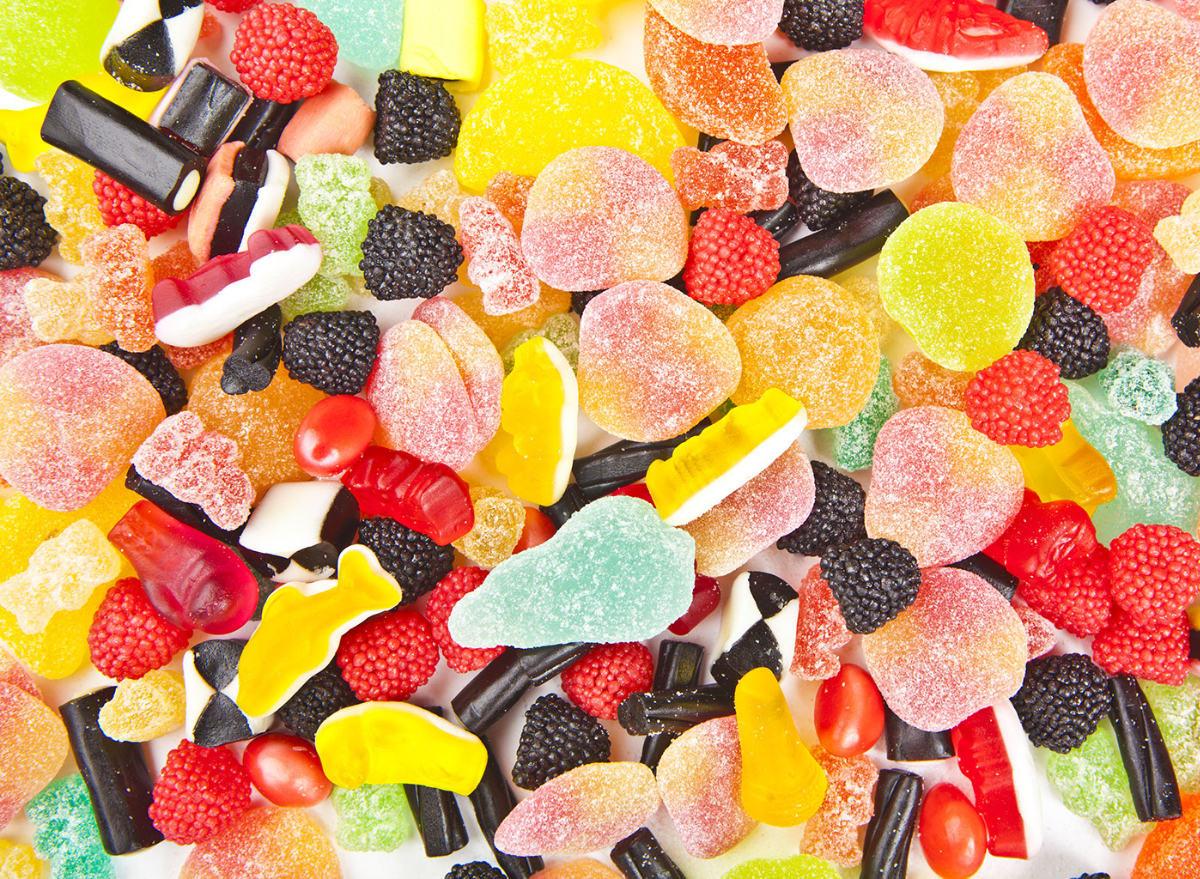
Your liver can take a ton of punishment, but during a pandemic, you should try to limit the abuse you throw at it.
"Avoid any foods that stress the liver such as foods with high-fructose corn syrup or trans fats," says Leann Poston M.D., M.B.A., M.Ed. "You cannot boost your immune system, but you can take the stress off the liver and allow the immune system to function optimally."
If you want to give your liver a break and revitalize a bit, learn which foods can rejuvenate this essential organ with 10 Ways to Reboot Your Liver.
Eating too many carbs.

Avoiding these eating habits during COVID can help increase your lifespan, like trying to not over do it on the processed carbs.
"Eat fewer snacks loaded with simple carbs like sugar and white flours," says Dr. Michael Crupain, MD, MPH. "These types of snacks can leave you hungry, are pro-inflammatory, and contribute to weight gain.
Instead, go for whole grains and fiber rich vegetables. Try Jicama which provides a satisfying crunch, fiber, and is hydrating. Roasted chickpeas also have a satisfying crunch and filled with protein and fiber."
Here's The Biggest Danger Sign You're Eating Too Many Carbs, Say Dietitians.
Eating mindlessly.
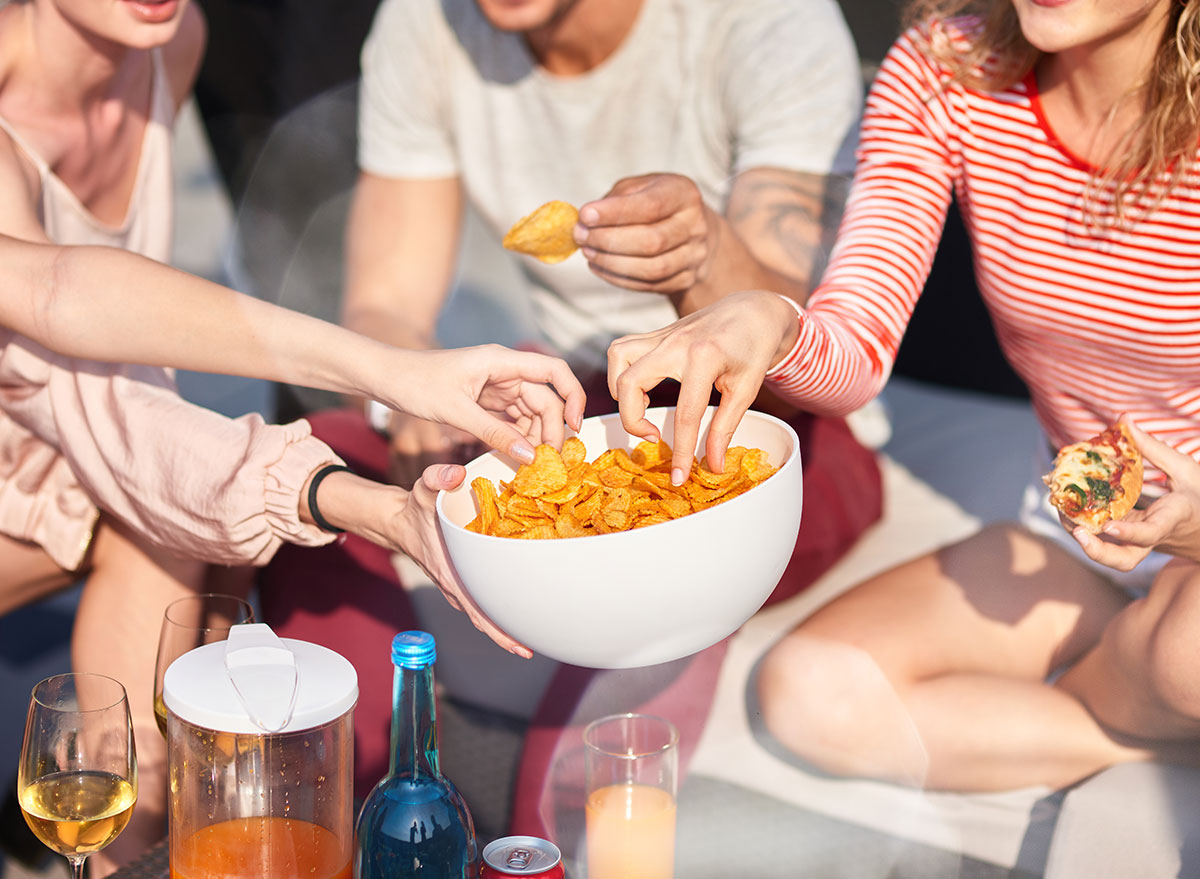
Snacking can throw your diet for a loop in ordinary times. Factor in any extra snacking during the pandemic, and you have a recipe for disaster.
"If [you're] stuck at home you may be spending more time trying to find something to fill the time by eating," says Dr. Crupain. "When you do, pay attention to how what you are eating really makes you feel. The first bite of a salty or sugary snack may make you feel better, but each subsequent bit will be less so. Think about how you feel 20 or 30 minutes later. Are you happy you ate that thing? Now next time you go roaming for food think again how it really
you feel."
Giving up on your meal plan.

Just because the world changes doesn't mean you have to give up your diet.
"Just because you are working from home doesn't mean that you can now eat whenever you want just because it is more convenient," says Dr. Oz, MD. "Having a daily meal schedule can help ease anxiety and help you stay grounded. If you live with others, try to eat one meal together so as to help you feel less isolated."
Eating too much salt.
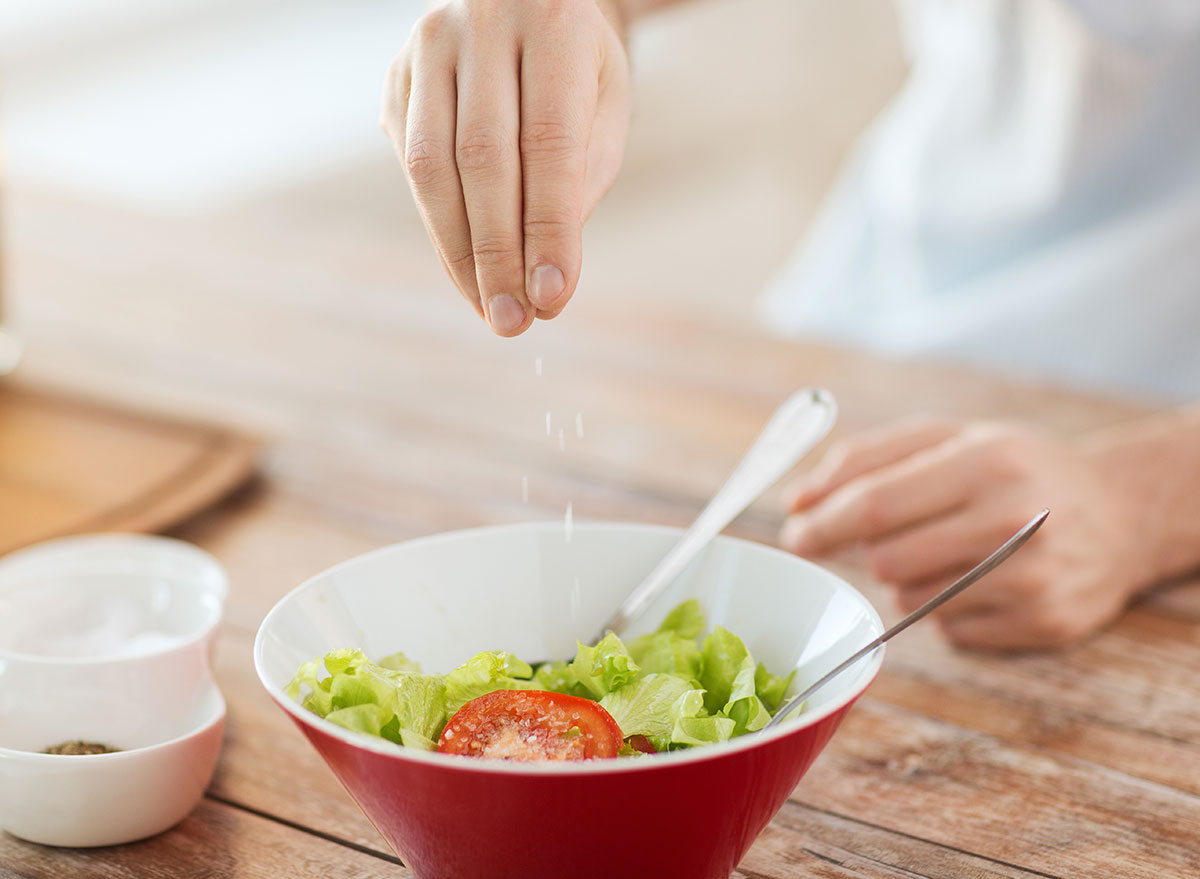
Excess salt never helps anyone, and when it's so easy to overdo it on this nutrient, we have to watch out or face some serious consequences.
"The Dietary Guidelines for Americans recommends limiting sodium intake to less than 2300 milligrams sodium per day—that's about 1 teaspoon of salt," says Dr. Oz. "But on average Americans eat 3,400 milligrams of salt per day. Salt may actually impact your immune system. One study of mice on high-salt diets found that they suffered from more severe bacterial infections because of the reduced capacity of immune cells. In the same study, healthy volunteers on a high salt diet for one week showed impaired antibacterial immune function."
"To minimize excess salt in your diet, try to prepare your own food and limit your use of packaged sauces, mixes and 'instant' products," says Dr Oz. "This way, you know exactly what is going into your food and have more control. Try to add flavor without sodium. There are no-salt seasoning blends and spices that add natural flavor."
Being too hard on yourself.

While times have proven tough for many of us, we can't let ourselves get too down.
"There's a lot of incentive for healthy eating, from protecting your immune system to making steps to prevent dementia, cardiovascular disease and even affecting your mental health," says Dr. Oz. "While there is more ongoing study to evaluate the 'food-mood connection' some studies show that people who do not have a balanced diet are more likely to report symptoms of depression. But it is important to try to stay positive- for your immune system. One study found that participants with self-reported positive emotions were less likely to develop a cold after being exposed. So, we aren't perfect, there is a lot going on, and everyone has their own journey. While we strive to do what is best for our bodies and our immune systems, remember to be good to yourself."
Once you decide if your eating habits fall into any of these categories, learn ways to reduce the damage and fight COVID with 5 Healthy Eating Habits to Fight COVID-19, According to the CDC.
